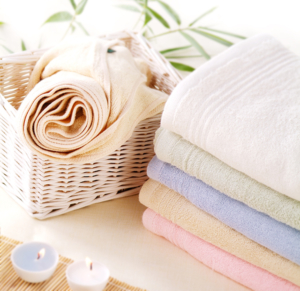Best Ways to Manage Alzheimer’s and Dementia Behaviors of Concern
 Awkwardness. Discomfort. Disbelief. Shame. Each one of these feelings can cycle through a family caregiver’s heart when someone you care about with Alzheimer’s disease showcases disinhibited behaviors, for example:
Awkwardness. Discomfort. Disbelief. Shame. Each one of these feelings can cycle through a family caregiver’s heart when someone you care about with Alzheimer’s disease showcases disinhibited behaviors, for example:
- Rude or tactless comments
- Inappropriate sexual advances or remarks
- Removal of clothing at improper times
- And other socially unacceptable actions
The complicated changes that occur to the brain in Alzheimer’s can cause a complete turnaround in an older adult’s personality and behaviors, for example, a formerly genteel grandma suddenly swearing like a sailor. For somebody who is disoriented, uncomfortable, confused, or has essentially forgotten social graces and skills, these behaviors are actually quite common, consequently it’s crucial to know how to best manage them if and when they develop in someone you love.
Responsive Home Care’s Alzheimer’s care specialists recommend trying the following tactics:
- See if there’s a solvable problem creating the behaviors, such as a physical illness, medication side effects, the need to utilize the rest room, environment-induced anxiety, etc.
- Remind yourself that the dementia is to blame, and respond patiently and gently, without overreacting or lashing out in anger.
- Help the senior loved one remain involved in appropriate activities in accordance with his / her particular interests. If the person becomes agitated with a specific activity, switch to something else, or move to a new room in the house or outside when possible.
- Pay attention to clothing choices if removing clothes at inappropriate times is an issue. If the older adult has been wearing pants without zippers for comfort and ease, you might want to change to something a bit more challenging to remove when out in public, for example.
- Be certain that each of the individual’s physical needs are met to circumvent problematic behaviors. Maintain a comfy temperature in the house, keep plenty of healthy snacks and drinks handy, and recommend regular physical exercise and movement.
- Offer proper physical contact often such as hugs, holding the person’s hand, or rubbing his/her back, when welcomed by the senior, communicating reassurance to relieve anxiety.
It is also beneficial to ensure you’ve got enough time for scheduled breaks to tend to your personal self-care needs and ease the stress that is frequently inherent in taking care of a senior loved one with Alzheimer’s disease. Responsive Home Care, the leader in dementia care in Hollywood, FL and the surrounding area, provides caregivers who are thoroughly trained and experienced in effective, compassionate dementia care, and are here for you with as much or as little respite care as necessary. Call us at 954-486-6440 for additional helpful resources as well as to schedule a free of charge in-home consultation for more information about how we can help.

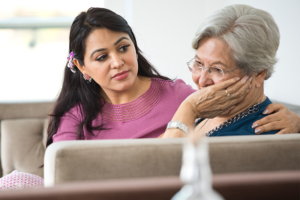
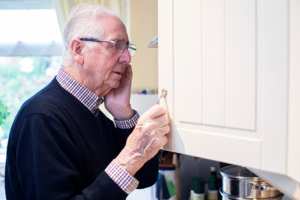
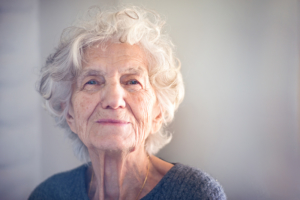
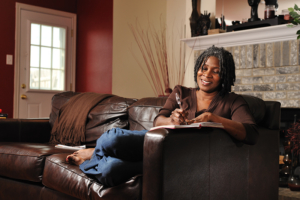 Taking care of a senior loved one with Alzheimer’s is a fluid, ever-evolving undertaking. One day may be calm and peaceful, with your parent enjoying activities, eating healthy meals, and sharing laughter with you; while the next day may be filled with agitation, anxiety, and sullenness. Exactly what will today bring?
Taking care of a senior loved one with Alzheimer’s is a fluid, ever-evolving undertaking. One day may be calm and peaceful, with your parent enjoying activities, eating healthy meals, and sharing laughter with you; while the next day may be filled with agitation, anxiety, and sullenness. Exactly what will today bring?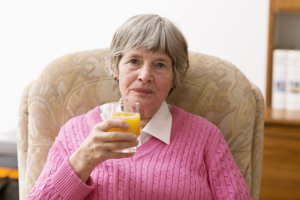
 Agitation is among the more difficult effects of dementia, and may be exceedingly frustrating for family members to manage. The key is in taking steps to handle agitation before it’s felt and expressed by the senior loved one, which involves keeping track of what has triggered these feelings in the past, and establishing a home environment in which those stimulants are eliminated or minimized. The
Agitation is among the more difficult effects of dementia, and may be exceedingly frustrating for family members to manage. The key is in taking steps to handle agitation before it’s felt and expressed by the senior loved one, which involves keeping track of what has triggered these feelings in the past, and establishing a home environment in which those stimulants are eliminated or minimized. The 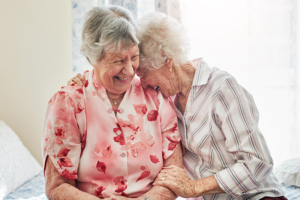


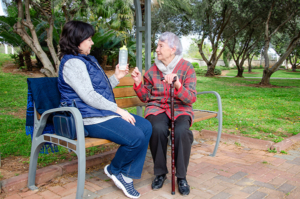 While there are certain commonalities, Alzheimer’s disease affects each individual differently. Our specially trained dementia caregivers know, for example, that although one individual may enjoy being outside, a different person could possibly be overwhelmed by so much sensory input and prefer a quieter indoor environment. One may enjoy a morning bath routine, while a measure of resourcefulness is necessary to help a different person maintain good hygiene.
While there are certain commonalities, Alzheimer’s disease affects each individual differently. Our specially trained dementia caregivers know, for example, that although one individual may enjoy being outside, a different person could possibly be overwhelmed by so much sensory input and prefer a quieter indoor environment. One may enjoy a morning bath routine, while a measure of resourcefulness is necessary to help a different person maintain good hygiene.